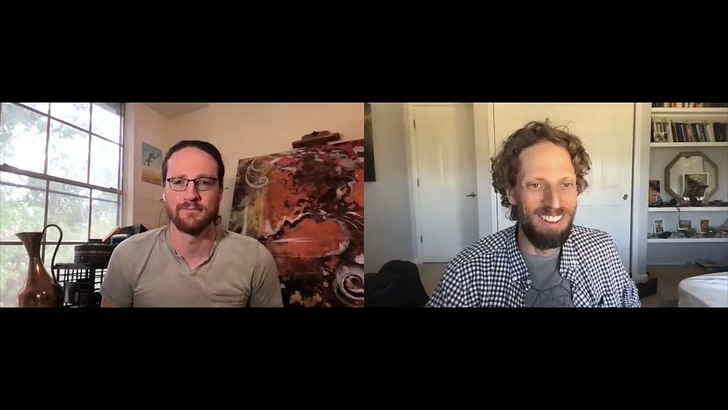5 Dialogs with Relational Arts pioneers
These deep dives offer applicable insights on specific areas of human relating
I have spent countless hours talking to practitioners of Relational Arts in my 12+ years of being a leader in this field. Some of these were recorded, and a few went deeper than others— and these are the ones I’m sharing with you in this post.
Jordan Allen, Adé Adeniji, Carrie Patrick, Josh Levin, and Zach Robison are all unique leaders with their own takes on relational work. In these conversations, we dive deep into what, how, and why they do things differently.
Jordan Allen on integral consciousness, relational blind spots, and growing up
Jordan Allen is the founder of The Relateful Company. Like all of us, he’s many things: entrepreneur, dad, philosopher, husband, lover of cats, and founder of the Relatefulness method — among many others. Jordan has been leading individuals, groups, and executive teams around the world for more than fifteen years.
This epic dialog is a far-reaching expression of the Relational Arts. AR and Circling were birthed from an integral consciousness, and Jordan is the best person I know to not just speak about it — but also model it with his way of being. In this dialog, he offers us a transmission of this powerful place beyond certainty.
** Important note. This dialog was recorded, fall 2021, before Circle Anywhere changed its name to the Relateful Company**
If you are curious about their online practice groups or their long-format Relateful Facilitator course click here.
Adé Adeniji on the obstacles to racial justice, importance of personal stories, and the exhausting aspects of BLM
Adé Adeniji is a London-based Relational Arts facilitator, workplace mediator, and a certified NLP practitioner. I met him when he was a student at ART, but he is also certified through Brené Brown’s organization as a Daring Way™ and Dare to Lead™ Facilitator.
This dialog was recorded during the Black Lives Matter surge in the USA, following the murder of George Floyd in 2020. I really value Adé sharing his voice and perspective as a Black AR facilitator. He speaks explains that anti-racist work needs to happen on three levels: personal, relational, and societal. However, he says, social movements are often slowed down by the lack of transformation on the personal and relational level.
Carrie Patrick on Authentic Relating in business, adapting your language, and the value of being bold
Carrie is one of the few people who have been successful in bringing AR to a corporate audience. She’s worked as the Senior Organizational Development Strategist at Dell, introducing relational practices to highly technical environments. Her background is in organizational psychology and she’s also worked with Authentic Revolution for many years.
In this conversation, Carrie reveals what it took for her to bring Authentic Relating into the corporate context. We speak of the implicit culture of big companies, and which pieces of it facilitators need to address if they want to help make radical culture changes. Carrie shares a few insightful, examples from her work which show that there’s a real appetite for those changes in the business world.
Josh Levin on preconditions for good feedback, psychological safety, and the art of being yourself
Josh Levin is one of my mentors and someone I owe a tremendous debt of gratitude to. He spent years working as a leader for The Integral Centre, training people in the Relational Arts. He’s also known as a life-coach, psychotherapist, and the king of slow.
In this conversation, we’re discussing the topic of feedback and in particular — how to give and receive it in the workplace. Josh leads with modeling a specific type of feedback, which is the one we all continuously get from our bodies. Then, we transition to dissecting what makes a good feedback, and how to create fertile ground for people to receive it.
Zach Robison on AR facilitation, building resilience, and Relational Arts as a life path
Zach Robinson has deepened his skills and facilitation over 8 years of work with Authentic Revolution and beyond. Within the Authentic Relating community, he’s beloved for his command of the subtle — as well as his warmth, and his humor.
If you have experience with Authentic Relating practices, you probably have a sense of their power and impact on your own life and community. But what is their impact from the vantage point of a career facilitator? How are they effective in the family context, or within a corporate setting? How can a facilitator use them to help people grow the skills to be with the deeper qualities of themselves, while in connection with others?
These are some of the questions Zach and I tackle in this dialog. Enjoy!



